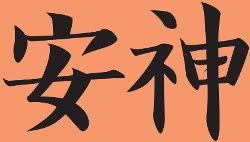It was good for me to be afflicted. ~Psalm 119:71a
What a strange thing for the Psalmist to say... It is not natural for us to enjoy or find goodness in adversity, yet this Psalm is full of strange sayings such as these. Why did the Psalmist say it was good to be afflicted (Merriam-Webster: to be distressed so severely as to cause persistent suffering or anguish)?
What was his gain? The next half and following verse tells it:
What was his gain? The next half and following verse tells it:
That I may learn Your statutes.
The law of Your mouth is better to me
Than thousands of coins of gold or silver. ~Psalm 119:71b-72
The law of Your mouth is better to me
Than thousands of coins of gold or silver. ~Psalm 119:71b-72
Today I found my Streams in the Desert devotional while cleaning my office. Among all the useful items for research and writing, lay this little jewel mined by a woman who knew affliction. First published over 80 years ago, its truths reach through the generations to encourage and uplift because it is totally written about the Truth as God set it down.
Read this October 1 devotion based on the above verse:
Read this October 1 devotion based on the above verse:
It is a remarkable occurrence of nature that the most brilliant colors of plants are found on the highest mountains, in places that are the most exposed to the fiercest weather. The brightest lichens and mosses, as well as the most beautiful wildflowers, abound high upon the windswept, storm-ravaged peaks.
One of the finest arrays of living color I have ever seen was just above the great Saint Bernard Hospice near the ten-thousand-foot summit of Mont Cenis in the French Alps. The entire face of one expansive rock was covered with a strikingly vivid yellow lichen, which shone in the sunshine like a golden wall protecting an enchanted castle. Amid the loneliness and barrenness of that high altitude and exposed to the fiercest winds of the sky, this lichen exhibited glorious color it has never displayed in the shelter of the valley.
As I write these words, I have two specimens of thesame type of lichen before me. One is from this Saint Bernard area, and the other is from the wall of a Scottish castle, which is surrounded by sycamore trees. The difference in their form and coloring is quite striking. The one grown amid the fierce storms of the mountain peak has a lovely yellow color of a primrose, a smooth texture, and a definite form and shape. But the one cultivated amid the warm air and soft showers of the lowland valley has a dull, rusty color, a rough texture, and an indistinct and broken shape.
Isn't it the same with a Christian who is afflicted, storm-tossed, and without comfort? Until the storms and difficulties allowed by God's providence beat upon a believer again and again, his character appears flawed and blurred. Yet the tiral actually clear away the clouds and shadows, perfect the form of his character, and bestow brightness and blessing to his life.
Amidst my list of blessings infinite
Stands this the foremost, that my heart has bled;
For all I bless You, most for the severe.
~Rev. Hugh Macmillan (1833-1903), Scottish minister and naturalist
We believers in America live a fairly soft, easy life. What kind of Christians does this lifestyle make? Are we dull, undefined examples of the blessings of God, living a mundane and unremarkable existence? Or have we grasped hold of the adversities, clawing apart the outer surface of suffering to find the depths of our Christ-molded soul, so it can sparkle with and for HIS GLORY?







2 comments:
I love the devotional "Streams in the Desert." Those are beautiful pictures you added. Adversity does indeed bring color and life to an otherwise dull but easy existence. Thanks for your wise words today.
Isn't that incredible? What beautiful pictures and an awesome parallel to a persons soul.
I read this week "calm waters do not produce good sailors" and I was reminded of what Jesus' disciple James said "consider it all joy my brothers when you encounter various trials for the testing of your faith produces endurance and endurance produces faith." Something like that :) Ack, I should look it up.
Thanks for the reminder.
Post a Comment